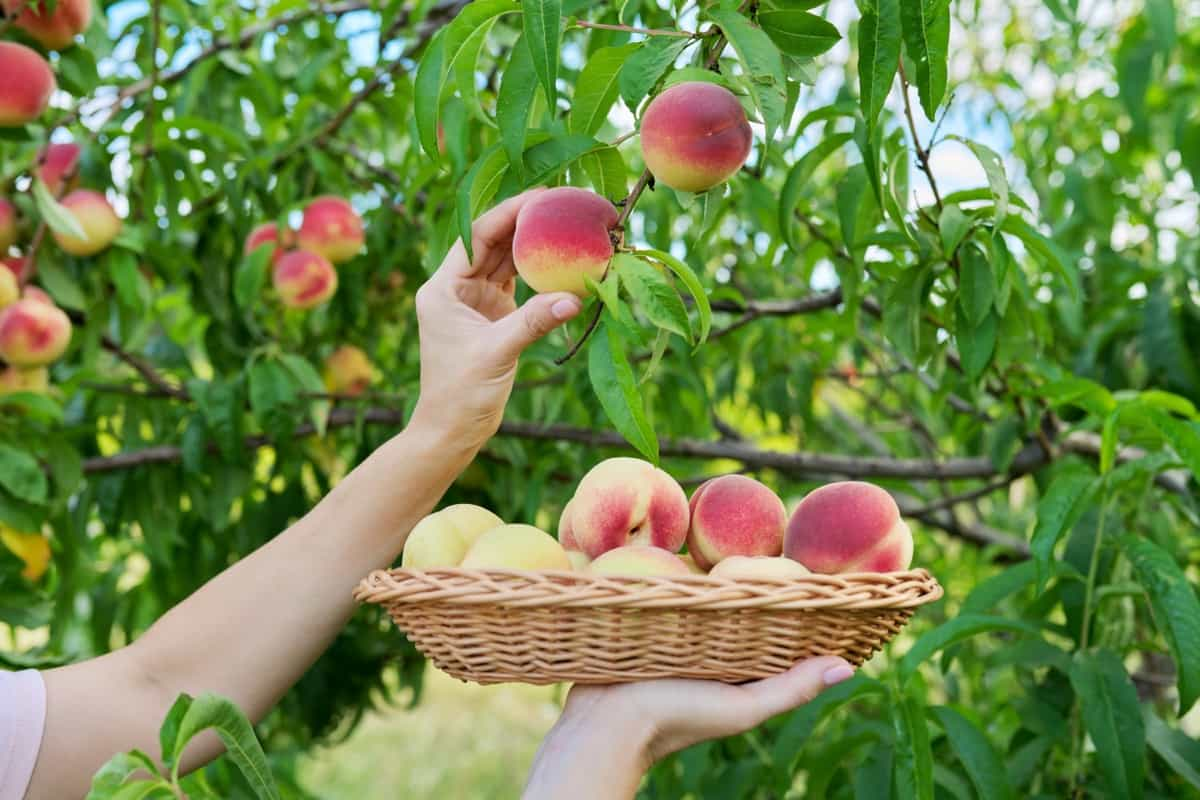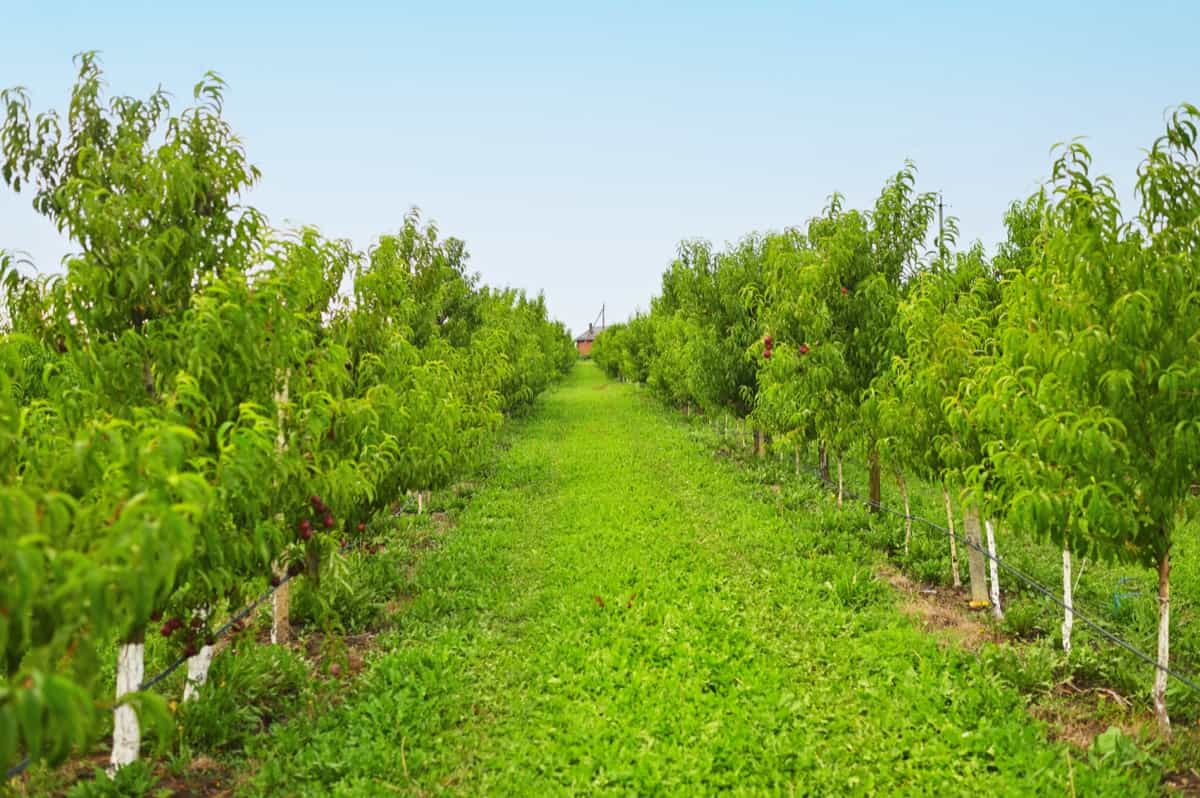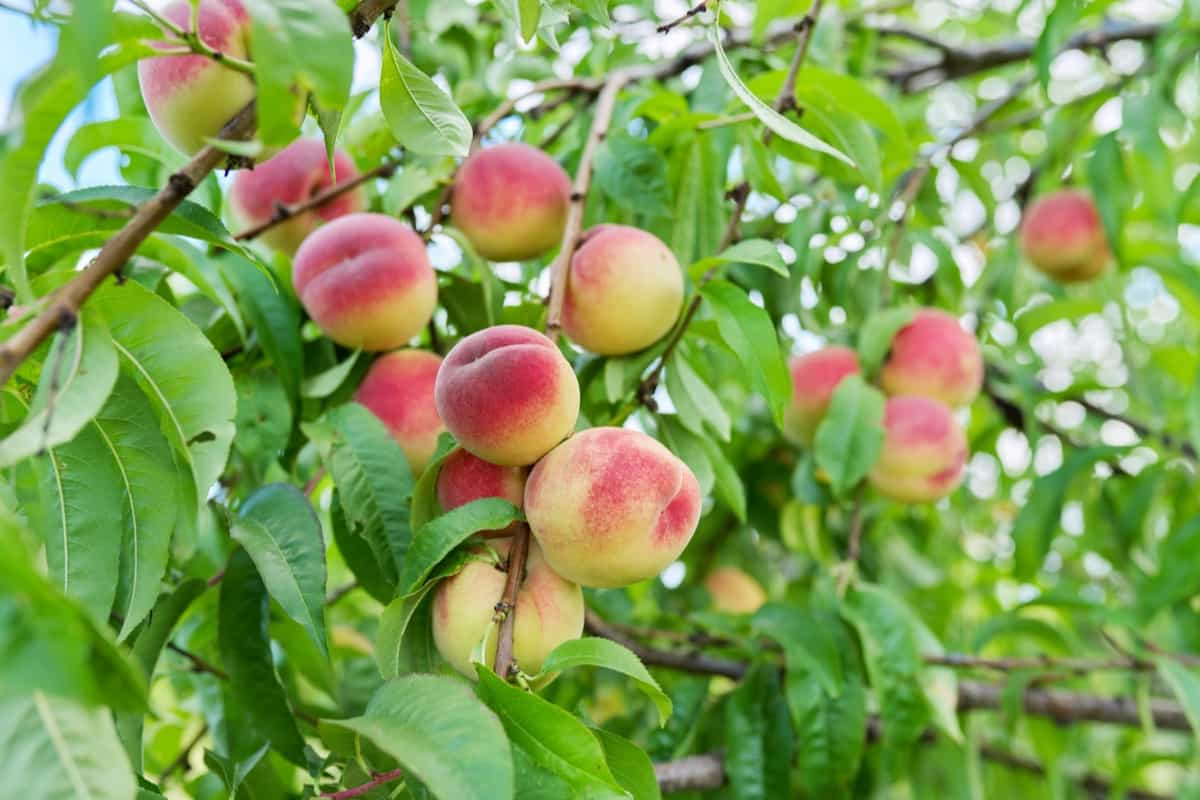This report comprehensively analyzes the economics and profitability of cultivating peaches on a one-acre farm. It examines the costs involved in peach farming and assesses the potential returns, aiming to assist entrepreneurs in making informed decisions regarding peach cultivation projects.

What is Peach Farming?
Peach (Prunus persica) is a fruit tree cultivated in warmer temperate regions globally. It yields small to medium-sized trees with lance-shaped, glossy green leaves and pink or white flowers. The fruit consists of a juicy edible exterior and a hard stone enclosing the seed(s). Varieties include freestone and clingstone, with fuzzy or smooth skins, respectively. Hand thinning may be necessary to limit fruit production for optimal growth.
Market and Demand for Peach Farming
The global fresh peaches market is anticipated to grow at a 3.2% CAGR, driven by increasing awareness of the fruit’s health benefits, including immune system support, improved digestion, blood pressure control, and reduced risk of chronic diseases. The online demand for peaches has also contributed to the growth of local logistics services such as SF Express and China Post. In India, peach prices range from a maximum of 5000.00 INR/Quintal in Solan to 2500.00 INR/Quintal in Firozepur City, varying across different varieties.
Best High-Yielding Variety for Peach Commercial Farming
| Variety | Description |
| Babcock | Small to medium-sized white-fleshed peaches with a tart taste. |
| Donut Peaches | Flatter and saucer-shaped freestone peaches of medium size. |
| Early Amber | Orange-yellow fleshed freestone peaches, harvested early in the season. |
| Arctic Supreme | Larger clingstone peaches with white flesh and red skin, known for taste. |
| Elberta | Self-fertile, large-sized freestone peaches with golden yellow skin, commonly found in Georgia. |
| Belle of Georgia | Highly prized freestone peaches with white flesh and a red blush on the skin. Known for their large size and juicy taste. |
| Nectarines | Genetic mutation of peaches without fuzz. Yellow flesh, sweet flavor, and smooth skin. |
Project Report of 1-Acre Peach Farming: Cost and Profit Analysis
Peach Farming Economics and Project Report
This report analyzes the economic aspects and project viability of peach farming. It explores the financial implications, profitability, and investment considerations associated with cultivating peaches. By examining key factors and providing insights, this report aims to assist in decision-making for individuals interested in peach farming ventures.
Initial Investment Required for a 1-acre Peach Farm
The initial Investment for a 1-acre peach farm is estimated to range from $430 to $460. This amount covers various components such as land lease or purchase, site preparation, planting material, fertilizers, irrigation system, labor, equipment, and miscellaneous expenses.
Land Preparation and Infrastructure Development Cost of 1-acre Peach
The cost of land preparation and infrastructure development for a 1-acre peach farm, including land lease or purchase, ranges from $50 to $100. Site preparation expenses, such as clearing and leveling, are estimated to be between $60 and $80. These costs are essential for establishing a suitable environment for peach cultivation.
In case you missed it: 10 Common Problems With Green Peas Plants: Treatment and Solutions

Expenses Involved in Planting and Growing Peach Trees on a 1Acre
The expenses associated with planting and growing peach trees on a 1-acre farm include the cost of planting material, which ranges from $70 to $100. This includes acquiring the necessary peach tree saplings or seeds for establishing the orchard.
Average Cost of Irrigation and Water Management for a 1-Acre Peach
The average cost of irrigation and water management for a 1-acre peach farm is estimated to be between $50 and $80, covering the installation and maintenance of the irrigation system.
Cost to Procure High-quality Peach Saplings for a 1-Acre
To procure high-quality peach saplings for a 1-acre peach farm, the cost ranges from $70 to $100. With an average spacing of approximately 109 trees per acre, these saplings are essential for establishing the orchard.
Ongoing Expenses for Fertilizers, Pesticides in 1-Acre Peach
The ongoing expenses for fertilizers and pesticides in a 1-acre peach farm amount to $40 to $60. These costs cover the necessary inputs for maintaining soil fertility and managing pest control measures to ensure healthy peach tree growth.
Labor Requirement for the Maintenance and Harvesting of 1-acre Peach
The labor requirement for the maintenance and harvesting of a 1-acre peach farm is estimated to range from $80 to $100. This includes the cost of hiring workers for tasks such as pruning, fertilizing, pest control, irrigation, and fruit harvesting.
Typical Costs Associated with Pruning, Training, and General Care of 1-acre Peach
The typical costs associated with pruning, training, and general care for a 1-acre peach farm amount to $80 to $100. These expenses cover the labor required to maintain the peach trees’ health, shape, and overall care.
Disease and Pest Management Cost Affect the Overall Expenses of Peach
The overall expenses of peach farming are influenced by disease and pest management costs, which range from $30 to $50. Additionally, miscellaneous expenses, including various operational needs, amount to approximately $20 to $30, impacting the overall budget.
How Long Does Peach Farm to Reach Full Production and Profitability
The time required for a peach farm to reach full production and profitability varies depending on several factors, including cultivar, growing conditions, and management practices. Generally, it takes around 3 to 5 years for peach trees to reach full production and profitability.
Average Yield of Peach Per Acre and How Does It Impact Profitability?
With an average yield of 12 to 15 tons per acre, higher yields in peach farming directly enhance profitability by increasing the quantity of marketable fruit, resulting in higher sales revenue and improved overall financial performance.
Current Market Price for Peach and How It Affects the Potential Profit
The current market price for peaches is 7000 INR per quintal. This price directly impacts peach farming, as it determines farmers’ potential revenue and profitability based on the number of peaches sold at the prevailing market rate.
Government Subsidies for Peach Farming
Government subsidies for Peach farming are provided to support and incentivize farmers in the sector. These subsidies encompass financial assistance, grants, tax incentives, and subsidized loans. Eligibility criteria and specific subsidies vary by region, and farmers should consult local agricultural authorities for information on available programs and their requirements.
In case you missed it: 9 Causes of Dying Peach Trees and How to Fix Them?

Cost of Cultivation of 1-Acre Peach Farming
| Components | Cost Range (USD) |
| Land Lease or Purchase | $50 – $100 |
| Site Preparation | $60 – $80 |
| Planting Material | $70 – $100 |
| Fertilizers | $30 – $50 |
| Irrigation System | $50 – $80 |
| Pesticides | $40 – $60 |
| Labor | $80 – $100 |
| Equipment | $30 – $50 |
| Miscellaneous Expenses | $20 – $30 |
| Total Cost | $430 – $460 |
Profits and Return to Investment from 1-Acre Peach Farming
- Cost of cultivation: $430 to $460 USD Yield per acre: 12 to 15 quintals Price per quintal: $85 USD
- Calculate the total revenue: Average yield per acre = (12 quintals + 15 quintals) / 2 = 13.5 quintals Total revenue = Average yield per acre * Price per quintal = 13.5 quintals * $85 = $1,147.50 USD
- Calculate the total cost of cultivation: Average cost of cultivation = ($430 + $460) / 2 = $445 USD
- Calculate the profit: Profit = Total revenue – Total cost of cultivation = $1,147.50 – $445 = $702.50 USD
Therefore, from a 1-acre peach farm with a cost of cultivation ranging from $430 to $460 and a yield of 12 to 15 quintals per acre at $85 per quintal, the estimated profit is $702.50.
Conclusion
1-acre peach farming presents a profitable venture with potential returns on Investment. While initial costs for land, infrastructure, planting material, and ongoing expenses exist, the market price per quintal and average yield contribute to the overall profitability. Government subsidies and favorable market conditions can further enhance the economic viability of peach farming projects.
- Feed Your Flock for Less: Top 10 Tips to Save on Chicken Feed
- Ultimate Guide to Ossabaw Island Hog: Breeding, Raising, Diet, and Care
- Hatching Answers: The Top 10 Reasons Your Chickens Aren’t Laying Eggs
- Eggs and Economics: Breaking Down the Cost of Raising Backyard Chickens
- Defend Your Greens: Proven Methods to Keep Iguanas Out of Your Garden
- Ultimate Guide to Cinnamon Queen Chicken: A Comprehensive Guide for Beginners
- Ultimate Guide to California Tan Chicken: Breeding, Raising, Diet, Egg-Production and Care
- Ultimate Guide to Marsh Daisy Chicken: Breeding, Raising, Diet, and Care
- 10 Types of Chicken Farming Businesses You Can Start for Profits